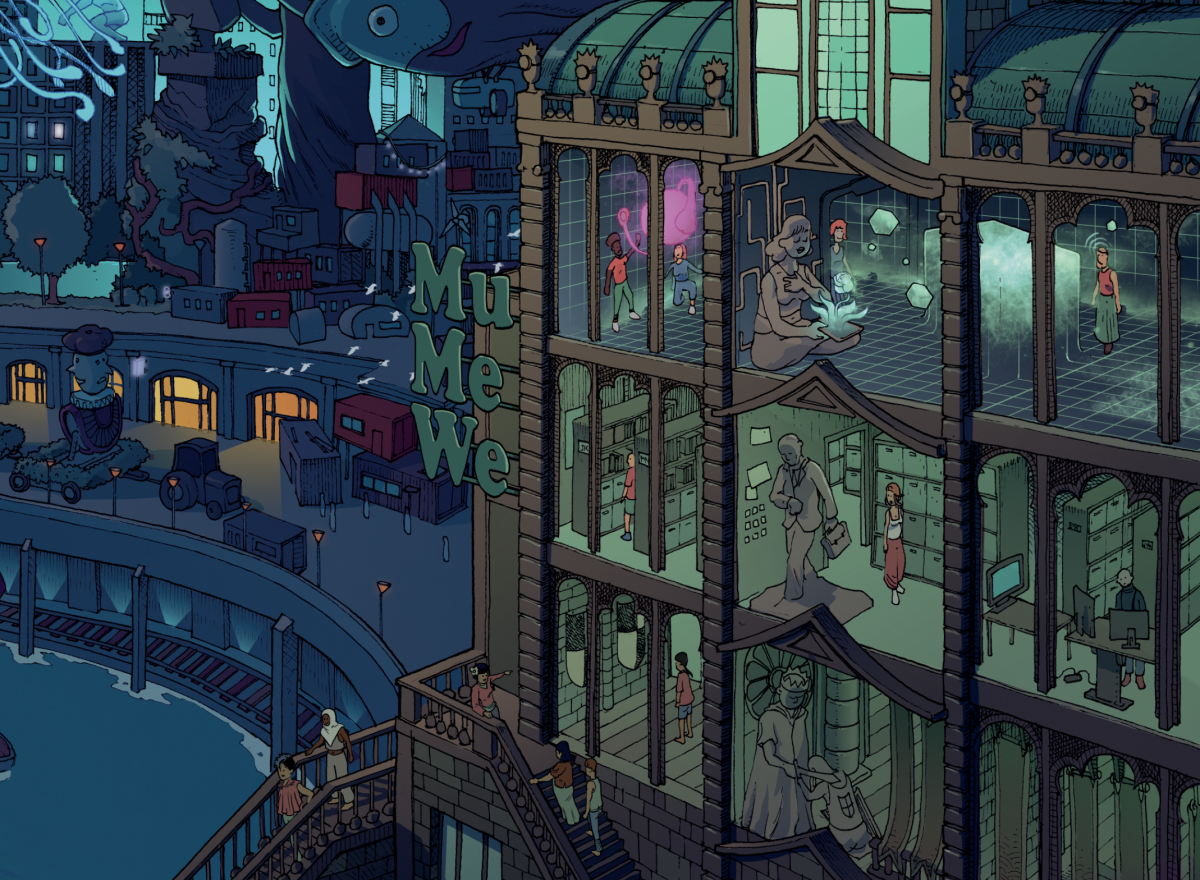
Art Quarter | Museum of Human and World Perspectives
The Museum of Worldviews and Human Natures takes you on a tour through the history of humanity and society. Here you can discover how people see themselves and the world around them from the Middle Ages to The Mastership Society.
---
Transcript
Time flies. This is the last stop on our tour of the city: the Art Quarter. You can sense the creativity in the air, like the innovation campus on Heijplaat. You’ll soon see this neighbourhood close up, but first let’s visit the Museum of Worldviews and Human Natures, or abbreviated in Dutch: MuMeWe.
In the MuMeWe’s presentation you learn about our changing perspectives on one another and the world, and how it has developed over time. Each floor explores a different human nature and worldview. Perhaps you’ll recognise some of your ideas about people and the world on the various floors. After all, in a way, these attitudes are a part of us all.
Let’s start on the ground floor with Homo Nobilis: a worldview and idea of human nature that dominated in the Middle Ages and in other pre-modern societies. For Homo Nobilis’ existence is something magical. He believes in fate, and that the ultimate truth comes from the higher world above. Loyalty is fundamental to his work and interpersonal relations. Loyalty to God, the King, the family and his best friends. In an age when most people couldn’t read or write, Homo Nobilis had no option but to trust a person’s word and look into their eyes.
Come join me one floor up. Here we find Homo Economicus, representing a worldview and human nature that came to dominate in the Modern Age. Homo Economicus looks at the world in a businesslike way: reality is something rational. Homo Economicus believes that ultimate truth can be found by measuring and observing the outside material world.
When it comes to work, Homo Economicus becomes their job, leaving their personal life at home. Homo Economicus is expected to be loyal to the organisation and its rules. And to be professional: objective and businesslike. When employees follow the rules and document everything properly, the organisation can operate smoothly.
Come, let’s take the stairs up to the top floor of the museum. Here we meet Homo Romanticus, whose worldview and human nature developed in the Modern Age and came to fruition in The Mastership Society. For Homo Romanticus, existence is mysterious. Homo Romanticus gives life meaning in a deeply personal way, and believes that the ultimate truth of existence can be found in our inner world and consciousness.
Meaningfulness and personal fulfilment are therefore vital aspects of work. Homo Romanticus wants above all to connect with themselves, with others and with nature. At work, this translates into being true to yourself, your vocation and your desire to continue learning and to strive for Mastership in your craft.
-
The Mastership Society
-
The Mastership
-
Science District | The Turing Cluster
-
Craft Quarter | Lifelong Learning Platforms
-
Heart Gardens | Lovelace Data Commons
-
Heart Gardens | Language Totems
-
Art Quarter | Museum of Human and World Perspectives